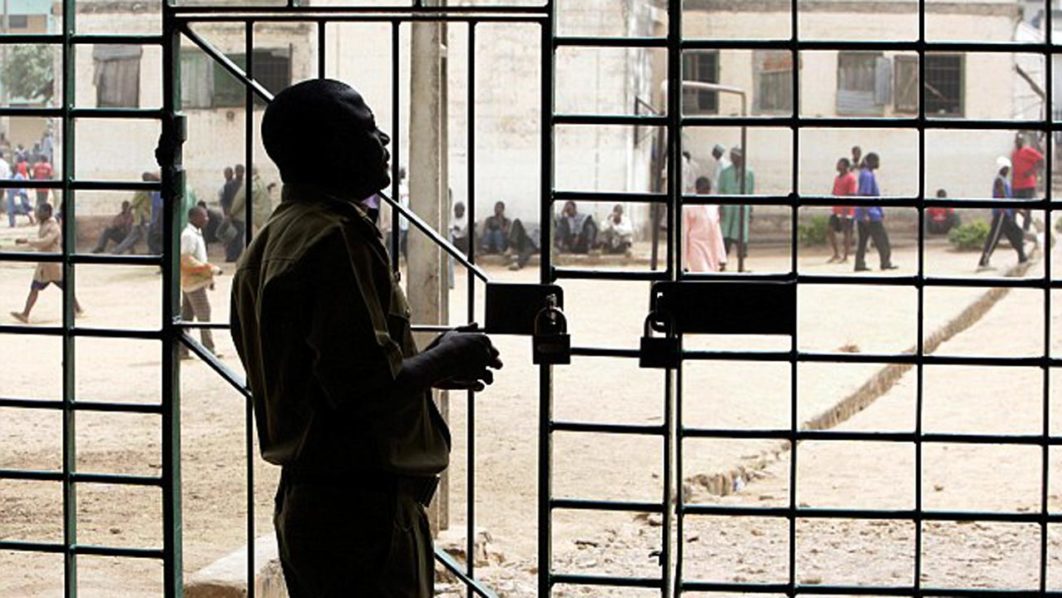The rising number of awaiting trial inmates in the country and the delay in determination of cases in court, the Federal Government, on Tuesday, said it has concluded plans to convene a national summit on justice.
The Attorney-General of the Federation and Minister of Justice, Mr. Lateef Fagbemi, SAN, made the disclosure at the opening session of a three-day national stakeholders’ forum on the review of the implementation of the Administration of Criminal Justice Act (ACJA) 2015 & Administration of Criminal Justice Laws of States.
Participants at the opening ceremony of the workshop, included the Chief Justice of Nigeria, Justice Olukayode Ariwoola; President of the Court of Appeal, Justice Monica Dongban-Mensem; the Chief Judge of the Federal High Court and the High Court of the Federal Capital Territory; the Solicitor-General of the Federation and Permanent Secretary of the Ministry of Justice, Mrs. Beatrice Jedy-Agba; as well as the President of the Nigerian Bar Association, Mr. Yakubu Maikyau, SAN.
Others, were; the Minister of Interior, Dr. Olubunmi Tunji-Ojo; the Inspector General of Police, Olukayode Egbetokun; Representatives of the Nigerian Correction Center; Chairman of the Independent Corrupt Practices and other related offences Commission, Prof. Bolaji Owasanoye, SAN, the Director General of the Drug Law Enforcement Agency, Buba Marwa; and Attorneys General of all the 36 States of the federation.
In his keynote address, the AGF, Fagbemi, SAN, maintained that a cardinal point of the Renewed Hope Agenda of the President Bola Tinubu-led administration, “is the commitment to ensuring that the criminal justice system of our country is more responsive to the demands of Nigerians for a simple, fast, efficient, effective, fair and trustworthy system for dispensation of justice.”
He said: “This forum will afford us the opportunity to collaboratively look back, evaluate and benchmark our performances in a journey that would lead to the improvement of our criminal justice system.
“It will help us to conduct a form of peer review of respective States approaches to the challenges of criminal justice administration, and also bring to the fore common approaches to common challenges confronting criminal justice administration.
“Accordingly, in conducting this review of the ACJA/ACJLs, we need to ask ourselves pointed questions regarding the nature and workability of the strategic amendments that we need to do in order to make ACJA/ACJLs respond to critical challenges and needs of our society.
“We need to know what we could have done better, and how much further we need to go to enable us achieve the desired outcome.
“So much has happened since the passage of ACJA in 2015. Of great significance is the development of the National Policy on Justice, which was developed in 2017 through a collaborative platform.
“Indisputably, the National Policy on Justice identified some of the root causes of the failures and inadequacies in our entire justice system, and sought ways to consolidate on various reform efforts across justice sector institutions.
“The Federal Ministry of Justice is making plans with relevant stakeholders to convene a National Summit on Justice to consider and adopt a revised National Policy on Justice, 2024 – 2028.”
Continuing, the AGF, said: “The second intervening issue since the enactment of ACJA, which I would like to comment on, as it touches on the corrective aspects of our criminal justice system, relates to the recent amendment of the Constitution of the Federal Republic of Nigeria, 1999 by the 9th National Assembly – vide Fifth Alteration (No. 15) Act of 2023.
“As we may all recall, the Fifth Alteration (No. 15) Act of 2023 deleted the legislative item “prisons” from the Exclusive Legislative List, re-designated it as “Correctional Services” and re-categorised it as a legislative item under the Concurrent Legislative List. The effect of these constitutional changes is that the Houses of Assemblies of the various States of the Federation can now make laws for their respective States in matters pertaining to Correctional Services.
“It has therefore become imperative to properly address issues arising directly from these constitutional changes. Central among these issues is the need for expedited collaboration and coordination between the respective States of the Federation and the Nigerian Correctional Service, for the purpose of ensuring proper structuration and delineation of responsibilities on custodial and other correctional matters.
“This will help in tackling issues of custodial rights and related correctional policies and its challenges,” the AGF added.
While the SGF, Mrs. Jedy-Agba, said the forum was a vital platform for collaboration, dialogue, and exchange of ideas on the implementation of the ACJA (2015) which she described as fundamental to the principles of justice, fairness, and accountability that underpin any democratic society.
The CJN, who was represented by a Justice of the Supreme Court, Justice Tijjani Abubakar, while declaring the forum open, said the meeting was apt and timely.
“This is a step in the right direction. I ask that the same zeal that gave rise to the enactment of ACJA should also be channeled towards its implementation,” the CJN pleaded.
In this article

